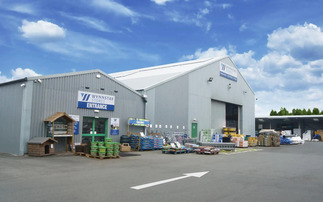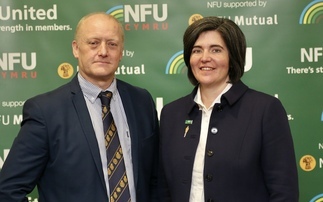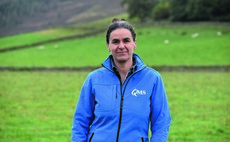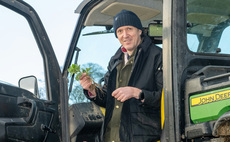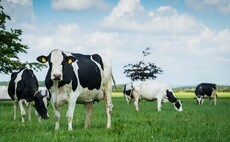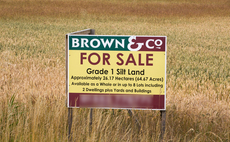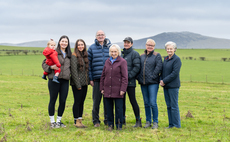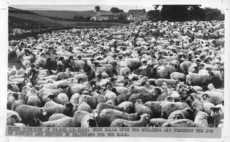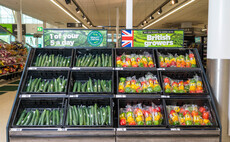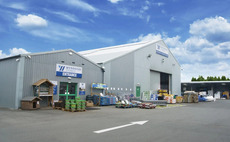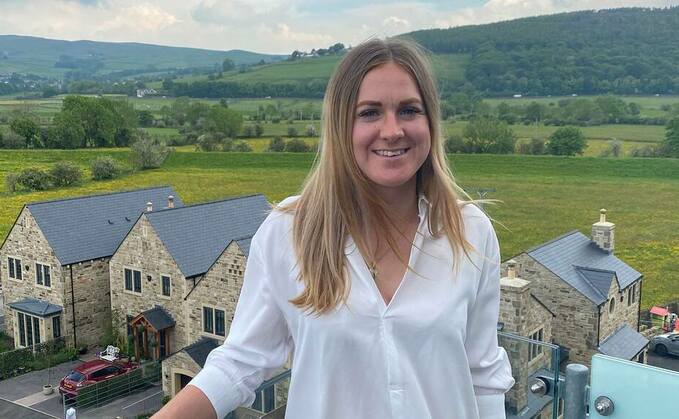
Jodie Bolland spoke on the Morrisons panel at the Great Yorkshire Show
The saying goes, the more you know about the past, the better prepared you are for the future, and that is the sentiment Jack Bobo, director of the University of Nottingham's Food Systems Institute shared when speaking at this year's Morrisons event at the Great Yorkshire Show.
In honour of the supermarket's 125th year, Mr Bobo spoke about the key topics, such as sustainability, leading the conversations around food and farming, and said that sifting through the plethora of bad news to find the good is, these days, quite difficult. But in order ‘to know where we are going, we need to know where we have come from.'
"When we look at issues today, it is easy to see problems," he said.
"But the UK is at a 150 year low for C02 emissions - that is pretty good.
"C02 is 40% lower than it was in 1990."
Sustainability is now, of course, part of many farmers' business plans, but he urged people to think about sustainability as a ‘journey', and one which will change.
Look, he said, at how far we have come.
"Agriculture will be more sustainable next year and the year after. It will always get better," he said.
He stated there are two competing views: to produce food like we did 100 years ago, and the flip side is using technology to do so.
But both have benefits, and a middle ground needs to be found, especially to feed a growing population.
He also touched on consumer perceptions of food, particularly labelling which can be emotionally driven.
"If something is labelled natural, there is a 10% increase in sales," he said.
"But what does it mean? Our minds lead us astray.
"People say, if you cannot pronounce the ingredients, you should not eat it - it drives me crazy.
"Food is made of chemicals, and we have to talk to people in a different way to make a difference."
We need to create the future we want, and we need a sense of where we want to go.
But what does the future look like with a national target of net zero in 2050?
After 2050, population growth slows dramatically because we have reached the peak of people having children.
He said: "Every day after 2050 it will get easier to feed the world if we have not screwed things up.
"The next 25 years are the most important there will ever be in the history of agriculture, and we need to get it right.
"We need the public to understand and appreciate [farming] so they allow us to implement change in agriculture that will allow us to save the planet."
Morrisons panel
The next part of the 125-year celebrations was a panel chaired by Sophie Throup, technical and sustainability director at Myton Food Group for Morrisons, Jodie Bolland, Morrisons UK agricultural sourcing director, livestock and eggs, Paul Geary, Morrisons head of trading, meat and poultry, and two generations of the Carr family, Frank and son Frank, who farm in Yorkshire and are Morrisons suppliers.
Paul began by touching on changing habits over the years.
He said: "Food choices were limited post-war, and diets changed dramatically.
"Now, 88% still eat meat – but less.
"Less and higher quality."
Food security was also a topic of discussion, and Jodie Bolland said this is something Morrisons value as a supermarket.
She went on to say if we introduce food from other countries with lower standards, there will be consequences.
She also said farming needs to be ‘valued' in the future, but they have, as a business, aimed to move closer to the consumer over the years, refining aspects such as the weight of cattle to produce a certain kind of steak.
Morrisons also review customer expectations in an ever-evolving society - price for the last 40 years has been customers' number one priority
Frank Carr, the fourth generation to farm at Lee Gate Farm, a hill farm in the middle of the Yorkshire Dales National Park, said that he believed technology will become more in use over the years, but right now it is an issue of cost.
As these technologies become more widely used, price will be driven down.
The workforce was also in discussion.
Audience member questioned how the industry can welcome new entrants, especially with the average age of a farmer being 59 and the amount of money needed to enter.
Morrisons spoke of their next generation programme which support those working to take over businesses with aspects like planning and succession.





